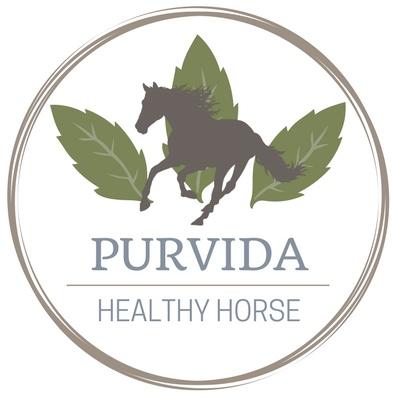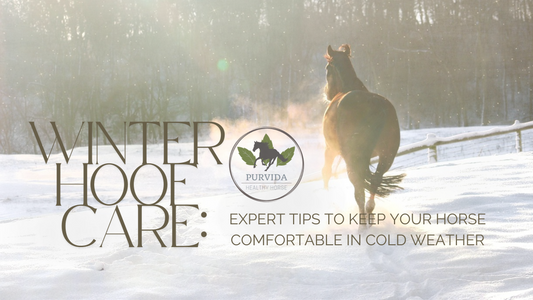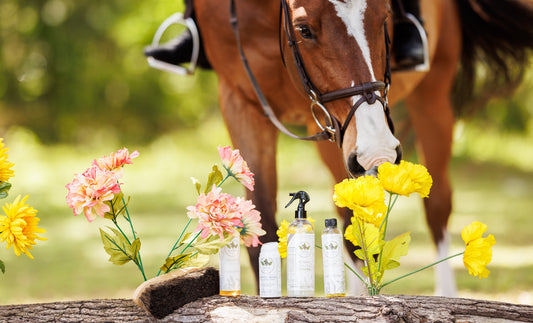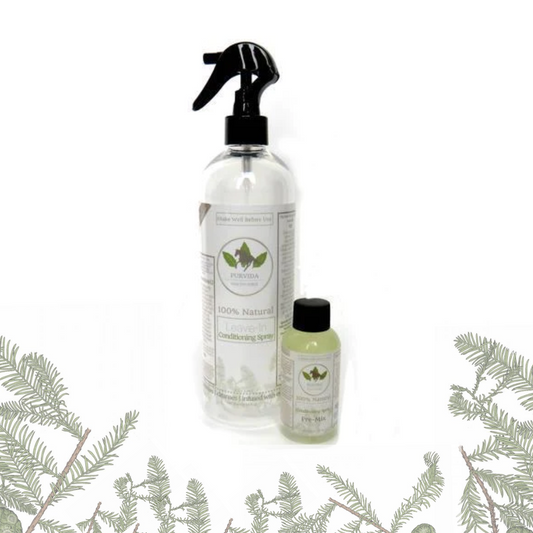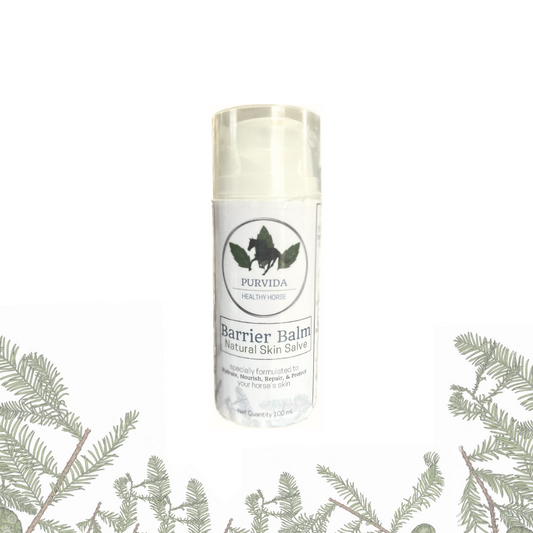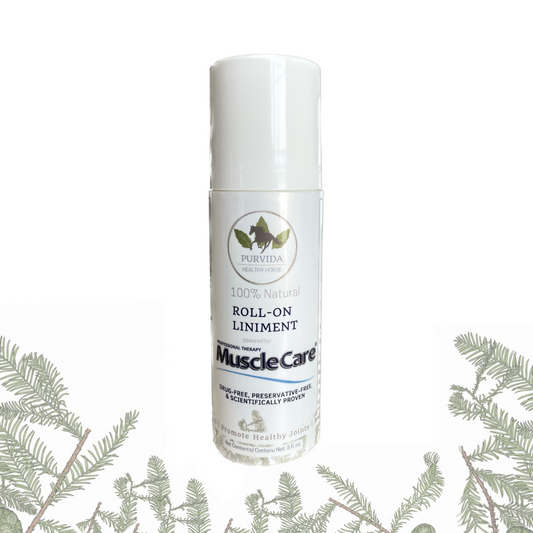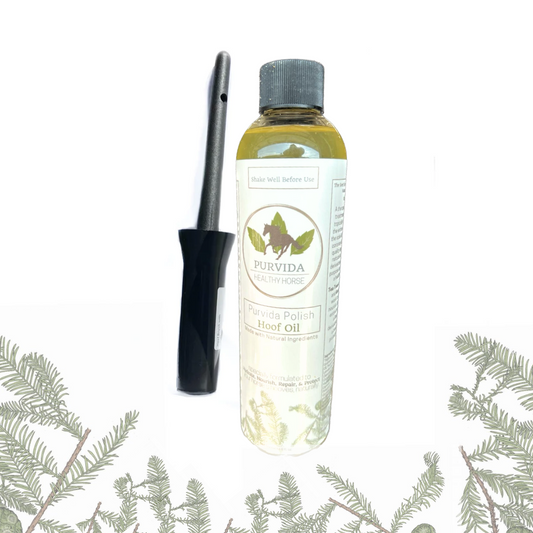Horse owners all know heat, bugs, and the elements can cause a lot of unwelcome skin issues this time of year, which is why we're going on a deep dive to get into exactly what issues are most likely to pop up, and how to get rid of them fast to keep your horse feeling their best.
Horse owners are also busy, so for those of you looking for a quick skim, scroll to the bottom for a summary chart.
1. Heat and Humidity: High temperatures and humidity create an environment where bacteria and fungi thrive, making horses more susceptible to skin issues like fungal infections and rain rot. Horses naturally sweat to regulate their body temperature. During summer, the combination of exercise and high temperatures leads to increased sweating, which can trap dirt, bacteria, and fungi on the skin, potentially causing skin problems.
The best way to prevent issues from cropping up is by maintaining a clean and dry environment for your horse as much as possible, providing proper ventilation in stables and shelters to reduce humidity levels, and by grooming your horse regularly to remove sweat and moisture from the coat.
If signs of fungal infections or rain rot appear, use antifungal shampoos and treatments. A quick bath with The Green N’ Clean Shampoo by Purvida Healthy Horse provides amazing antifungal benefits while cleansing with a gentle natural surfactant and balancing skin's pH. Once your horse is dry, following up with the Barrier Balm Skin Salve creates a protective barrier against moisture and is made with ingredients that naturally kill bacteria and fungus, repel insects, & promote skin health.
2. Flies, Mosquitoes, & Other Annoying Bugs: Summer brings out a plethora of insects, such as flies, mosquitoes, and ticks. These pests not only cause irritation

and discomfort, but can also transmit diseases to your horse.
Protecting horses from insect bites requires constant vigilance and appropriate protective gear. Use fly sheets, fly masks, and fly repellents to minimize exposure to insects and keep the stable area clean by removing manure regularly. You can also look into other
animals like guinea hens, or other forms of biological fly control.
If your horse develops insect bites or irritation, soothe the affected areas with our All-in-One grooming spray, made with Witch Hazel to get rid of itchy irritated skin and reduce inflammation, and cedarwood essential oil, an incredible natural insect repellent. You can also make a soothing DIY remedy by applying the gel from an aloe vera plant. Remember, if you're making DIY treatments to always ensure that any essential oils or other products are properly diluted and safe for use on horses.
3. Sun Exposure: Prolonged exposure to the sun's UV rays can damage a horse's skin, leading to sunburn and even more serious conditions like skin cancer. Light-colored or thin-skinned horses are particularly vulnerable. You can help your horse out by providing shade in turnout areas and during exercise, using UV-blocking fly sheets or zinc oxide- a natural sunscreen, to areas with thin or pink skin, and limit sun exposure during peak hours.
If your horse does get a sun burn, keep the affected area clean and protected from further sun exposure, and do not apply any oil based product to sensitive areas of your horse and turn them out into direct sunlight, it’s like putting tanning oil on your horse’s skin (that includes our Barrier Balm - ensure that you put this on after your horse comes in or after the sun goes down)
4. Allergens: Pollens, molds, and other allergens are more abundant in the summer, causing allergic reactions that may manifest as skin irritations or hives. You can prevent issues by minimizing your horse’s exposure to allergens—provide clean bedding, reduce dust in the stable, and avoid turnout in areas with high pollen concentrations can all help prevent issues from developing.
If your horse shows signs of allergies (itching, hives, etc.), try soothing topicals like our All-In-One Grooming spray, made with witch Hazel to get rid of inflammation and itchy skin. If your horse's allergic reaction is severe or persistent, it's best to consult with a veterinarian, they may recommend antihistamines or other treatments to manage the allergic reaction.

5. Dryness and Flakiness: Paradoxically, while humidity can cause moisture-related skin issues, excessive dryness can also occur due to sun exposure and evaporation. Dry skin can become flaky and prone to cracking, leaving it vulnerable to infections. Balance bathing frequency to prevent excessive drying of the skin during this time of year and always use moisturizing shampoos and conditioners that help maintain the skin's natural oils. The Green n’ Clean antifungal shampoo by Purvida Healthy Horse is one of the few available that is pH balanced AND has a natural surfactant, keeping your horse clean without over drying the skin or coat.
If your horse does get dry skin, apply a moisturizing skin salve, like the Barrier Balm Skin Salve, to combat dryness and flakiness. Regular grooming with a good curry comb can also help distribute natural oils and prevent further dryness.
6. Thinning of protective barriers: Your horse's natural skin barriers, such as oils and fatty acids, can be compromised during summer which can make them more susceptible to irritations and infections. Soap, sweat, and grooming can all weaken your horse's natural defenses. That's why its not only important to regularly groom your horse, but to look at exactly what you're putting on their skin -- it can make all the difference. Products with pesticides, surfactants, phthalates, and other irritating chemicals commonly found in fly sprays, detanglers, and shampoos can do more harm than good. Opt for products with gentle, natural ingredients, they are just as effective as their synthetic counterparts and your horse will thank you.

7. Outdoor Exposure: Horses spend more time outdoors during the summer, exposing them to various environmental factors that can impact their skin health. Rolling in dirt, coming into contact with plants, and other activities can introduce contaminants to the skin.
Inspect turnout areas for potential hazards, sharp objects, or toxic plants that could cause skin issues. In the summertime a tiny cut can blow up into a much bigger issue pretty quickly. You can also use protective leg wraps or boots during turnout. If your horse does run into any issues, Cleanse and treat any cuts, scrapes, or irritations promptly with our Green N’ Clean shampoo followed by the Barrier Balm Skin Salve.
Summary
| Problem | Prevention | Solution |
| Heat & Humidity: create a breeding ground for bacteria & fungus, leading to increased skin issues | Keep everything as clean and dry as possible in the barn, provide proper ventilation, and groom as regularly as possible to remove sweat and moisture. | If your horse gets fungal issues, the Green N' Clean shampoo and Barrier Balm Skin salve are the ultimate duo in cleaning, killing bacteria and fungus, and providing a protective barrier. |
| Insects: flies and other biting insects are irritating and spread diseases | Use fly sheets, fly masks, and fly repellents and keep your barn area as clean as possible. Consider biological fly control methods. | Soothe existing bites and repel flies with our all-in-one grooming spray |
| Sun Exposure: prolonged UV exposure leads to sunburn and skin damage | Providing your horse with shade is the best way to prevent sunburn, but you can also apply zinc oxide, a natural sunscreen to pink or thin skinned areas. | If your horse gets a sunburn, keep the area clean and away from the sun. Avoid putting on oil based products in direct sunlight. |
| Allergens like pollens and mould trigger skin irritations leading to hives | Try to keep the barn and pasture as clean as possible. | Balance your bathing frequency with our all-in-one grooming spray, a great natural dry shampoo and made with witch hazel to reduce existing irritation. |
| Dryness/Flakiness a horse that has been outside in the sun in dry elements for long periods of time can leave the skin flaky and prone to cracking, leaving it vulnerable to infections | use moisturizing natural ingredients to provide a protective barrier for your horse's skin and don't overbathe. | If your horse does have extremely dry, cracked skin, apply the barrier balm skin salve to provide intense hydration, and to promote cellular regeneration and hair growth |
| Thinning of protective barriers due to more bathing, sweating, and grooming | Choose products that have soothing, natural ingredients instead of harsh chemicals that will strip natural protective barriers do more harm than good. | The barrier balm skin salve will help restore your horse's natural protective barrier by hydrating, repelling insects, and by promoting cellular regeneration and hair regrowth. |
| Outdoor Exposure: horses spend more time outside in the summer and with less protection from the elements | Inspect turnout areas for potential hazards and toxic plants, put your horse in protective boots during turnout, and apply sun screen to sensitive areas. | Cleanse and treat any cuts, scrapes, or irritations promptly with our Green N Clean Shampoo and Barrier Balm Skin Salve. |

